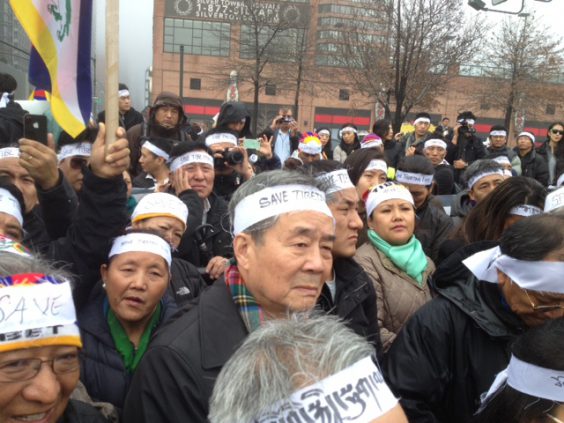
Harry Wu on Human Rights Day. Image via Wikimedia Commons

Harry Wu on Human Rights Day. Image via Wikimedia Commons
Tienchi Martin-Liao : Harry Wu: An Amazing Survivor已关闭评论
Posted in Culture, Headlines, History, Tienchi Martin-Liao
Tagged Forced Labor, Harry Wu, Laogai, Tienchi Martin-Liao
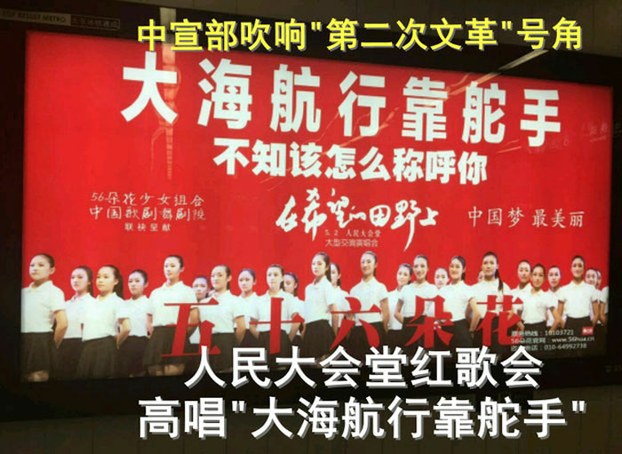
A revolutionary song is performed by the “56 Flowers” troupe in a televised appearance, May 2, 2016. RFA/Qiao Long
As China approaches the 50th anniversary of the launch of late supreme leader Mao Zedong’s Cultural Revolution (1966-1976), the ruling Chinese Communist Party appears to be sending mixed signals about public events marking the decade of turmoil and political violence. Continue reading
Beijing Mixes Its Message on The Cultural Revolution’s Golden Anniversary已关闭评论
Posted in Culture, Headlines, History
Tagged 56 Flowers, Anniversary, Cultural Revolution, Mao Zedong, revolutionary songs

The Facebook logo is seen enlarged through glasses on a computer screen.
Facebook has won a rare trademark lawsuit in China over the use of a version of its name by a Chinese beverage maker. Continue reading
Facebook Scores Rare Legal Win in China已关闭评论
Posted in Headlines, Internet Freedom
Tagged censorship, court, Facebook, Great Firewall, Mark Zuckerberg, trademark

People sitting below the logo of Chinese search giant Baidu at the firm’s headquarters in Beijing, in file photo. AFP
As China ordered its top search engine Baidu to change its ways following the death of a young cancer patient, analysts said the latest medical scandal is symptomatic of deeper structural problems in the regulation of healthcare in the country. Continue reading
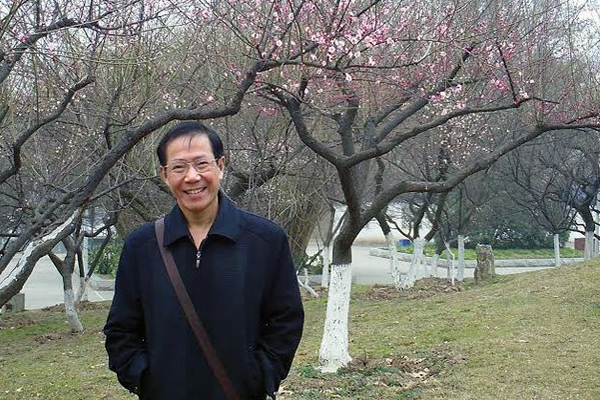
Chinese activist Qin Yongmin in an undated photo. Photo courtesy of Qin Yongmin
Authorities in the central Chinese city of Wuhan are believed to have tried veteran democracy activist Qin Yongmin in secret, a fellow activist said, citing police sources. Continue reading
Veteran Chinese Democracy Activist May Have Been Tried in Secret已关闭评论
Posted in Headlines, Subversion, Subversion
Tagged Inciting Subversion, QIN YONGMIN, trial, Wuhan
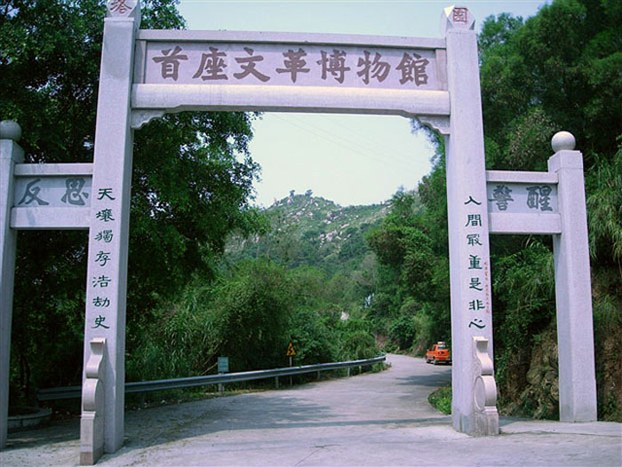
The entrance to Guangdong Shantou the country’s first museum of the Cultural Revolution is shown in this undated file photo. Network Graphics
Authorities in the southern Chinese province of Guangdong have apparently clamped down on the only museum dedicated to the Great Proletarian Cultural Revolution, 60 years after it was launched by late supreme leader Mao Zedong. Continue reading

Eating a banana “seductively” has been deemed inappropriate content for the internet in China. Credit: YouTube
Eating a banana in an “erotic” manner while being broadcast on live-streams has been banned in China as part of the government’s attempts to crack down on “inappropriate” content on the internet.
Hosts of the live-streaming sites are now required to monitor all their output every minute of the day, but it is not clear how they will be able to enforce the ban.
Wearing stockings and suspenders during a live-stream is also now prohibited.
The move comes a month after the Ministry of Culture announced it was investigating several live-streaming sites, including Douyu, Panda.tv, YY, Zhanqi TV, and Huya, for allegedly hosting pornographic or violent content that “harms social morality”.
A recent survey revealed 30-40 percent of the subjects in live-streams are students, and 77 percent of the viewers were male users, CCTV News reported. According to the New Express Daily, 26 percent of the viewers are under 18, while 60 percent of those being broadcast are younger than 22.
The move has bemused many social media users, with some wondering how authorities decide what is “seductive”.
“How do they decide what’s provocative when eating a banana?” one person asked, according to the BBC. Another wondered: “Can male live-streamers still eat them?”
 Others suggested the people in live-streams would simply choose another fruit or vegetable. “They will all start eating cucumbers, and if that’s no good, yams,” one user said.
Others suggested the people in live-streams would simply choose another fruit or vegetable. “They will all start eating cucumbers, and if that’s no good, yams,” one user said.
China has been clamping down on internet freedoms under Xi Jinping, closing down social media accounts of government critics and targeting opponents who it claims peddle in “on-line rumours”.
Internet censors have also shut down the website of foreign media organisations, including the New York Times.
Last year, China’s government threatened to shut down Sina, one of the country’s most popular news websites unless it “improves censorship”, state media reported.
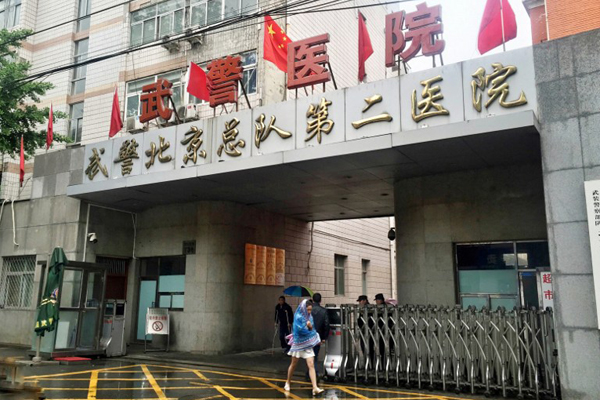
A woman leaves the military-run hospital where Chinese student Wei Zexi received treatment for cancer after consulting online results from Chinese search engine Baidu in Bejing, May 2, 2016.
China on Thursday banned the outsourcing of medical procedures by its hospitals following the death of a young man from cancer after he found a discredited treatment using the homegrown search engine Baidu, as the country’s powerful propaganda ministry banned any further media reports on the scandal. Continue reading
China Bans Further Reporting on Chain of Medical Businesses Amid Anger Over Man’s Death已关闭评论
Posted in Headlines, Internet Freedom, Press Freedom
Tagged Baidu, censorship, Wei Zexi